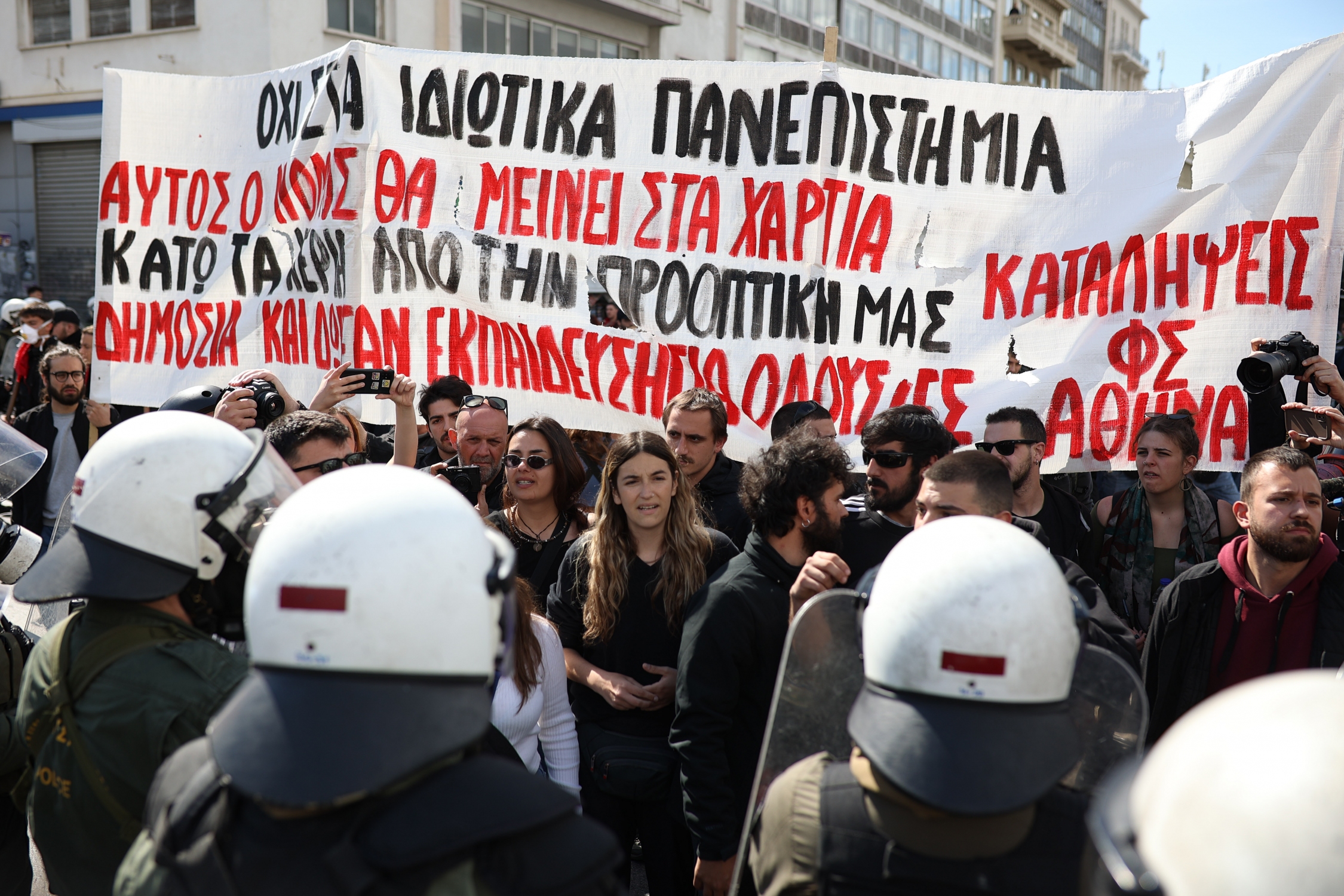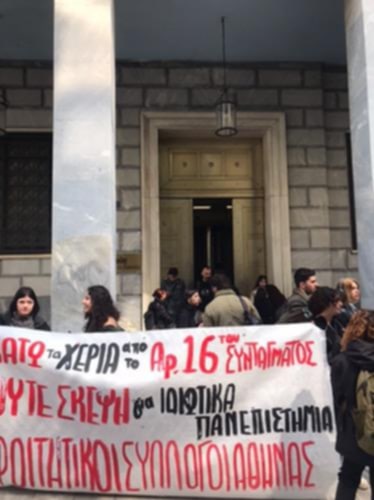
The legal challenge
The case centers around Law 5094/2024, which allows for the establishment of “non-state universities.” The challenge claims that this law conflicts with Article 16 of the Greek Constitution, which guarantees that higher education in Greece must be provided by public institutions only. The petitioners argue that the law is unconstitutional as it contravenes this constitutional provision and undermines the quality of education by allowing private universities to operate.
University professors also stress that the new law undermines academic freedom, state oversight, and the autonomy of universities.
Interestingly, certain private institutions have also joined the opposition, arguing that the introduction of private universities would devalue their qualifications, creating a two-tiered education system.
The Supreme Court’s review
The law allowing private universities was passed on 9 March 2024 after a three-day session in the Greek Parliament. Since then, student associations have rallied against it, calling for the law to be repealed and for greater funding for public universities.
The Council of State’s plenary session today is set to decide whether the provisions of Law 5094/2024 are compatible with the Greek Constitution or whether European Union law, concerning cross-border agreements for higher education, should take precedence. The Greek government has based its defence of the law on EU legislation.
The Commissioner for Innovation, Research, Culture, Education, and Youth, Iliana Ivanova, has explained that EU member states are responsible for shaping their educational systems, including higher education. She clarified that the EU encourages cooperation between member states but does not interfere with national laws governing education. Ivanova also referred to the European Court of Justice’s established jurisprudence, which supports freedom of establishment and academic freedom, as well as the right to establish higher education institutions.
Press release from POSDEP
The Panhellenic Federation of Researchers and Professors (POSDEP) issued a statement regarding the case. It reiterated its stance that the establishment and operation of private universities by legal entities contradicts the Greek Constitution, which specifies that higher education should only be provided by public entities. POSDEP called for a referral to the European Court of Justice to assess whether the law violates both Greek and European Union law.
Additionally, POSDEP highlighted that the law’s provisions were not intended to attract foreign universities to Greece but to enhance the academic status of existing colleges that are already partnering with foreign institutions. POSDEP argues that this leads to the academic “upgrade” of these colleges, without any real regulation or oversight.
They also used the occasion to raise concerns about the salaries of university professors. It revealed that their wages have been stagnant for years, with professors effectively earning according to the 2003 salary scale, unlike other public sector workers.
As the case continues today, the outcome could have significant implications for the future of higher education in Greece. Whether private universities will be allowed to operate alongside public institutions, or if the Greek Constitution will be upheld, remains to be seen. What is clear, however, is that students and faculty are determined to protect the integrity of the public university system and secure better conditions for those who teach and learn within it.
Outside the courtroom where the Council of State is meeting, student unions have gathered with banners, demanding the repeal of the private universities law, increased funding for public universities, and degrees that are free and valuable.
______________________________________________
Are you seeking news from Greece presented from a progressive, non-mainstream perspective? Subscribe monthly or annually to support TPP International in delivering independent reporting in English. Don’t let Greek progressive voices fade.
Make sure to reference “TPP International” and your order number as the reason for payment.

